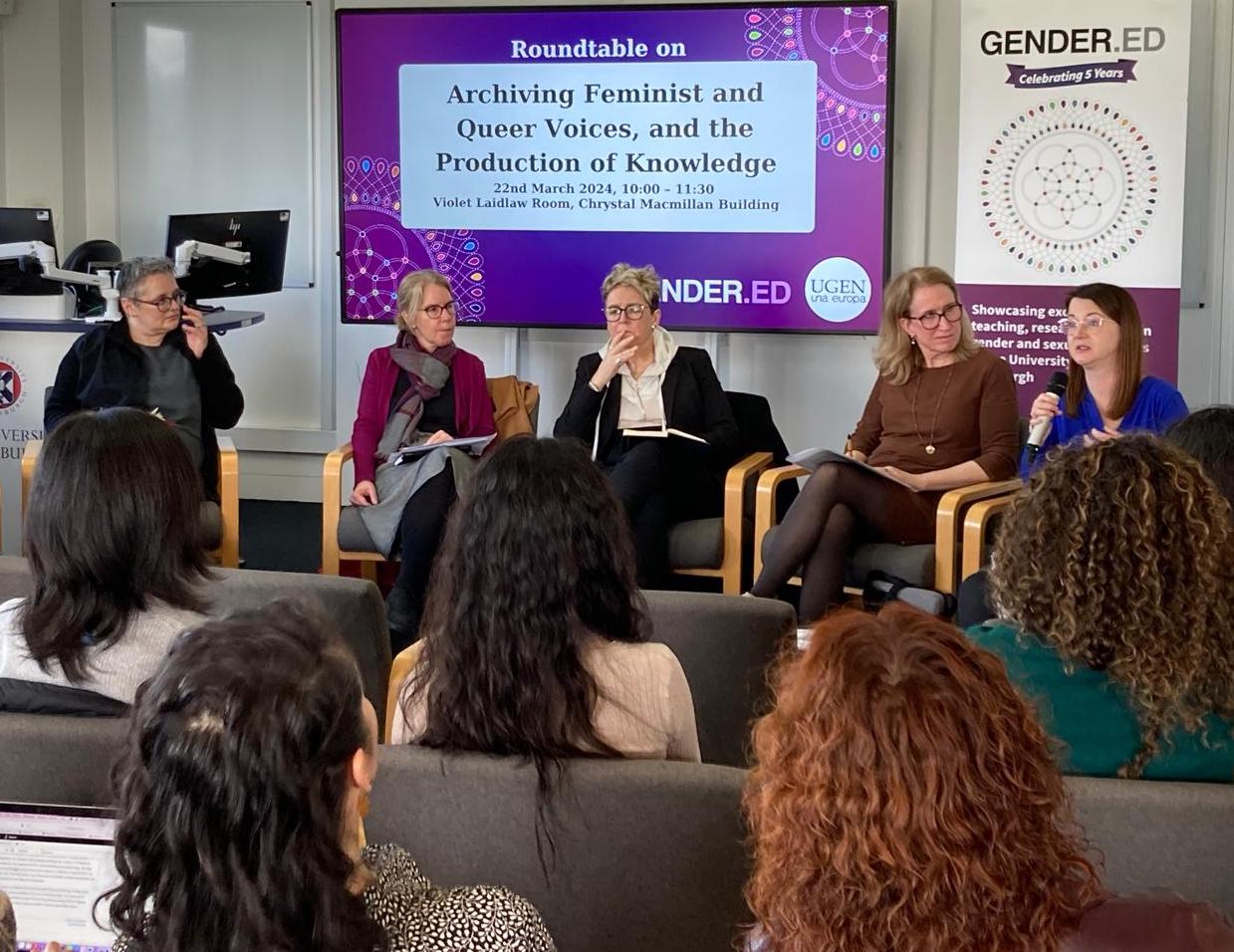Bringing the Archives into the University
This dossier on Archiving Feminist and Queer Voices, and the Production of Knowledge comprises a series of short posts from speakers at our roundtable on the topic convened during the visit we hosted for members of UGEN at this event.
By Anna Góral

Image: Roundtable participants at the UGEN meeting, Dr. Anna Góral pictured speaking; credit: Wanned Dupont.
I'm going to share with you, not exactly my research, but some reflections on how this knowledge production is going on within my university, the Jagiellonian University, in Kraków, Poland. I’m a researcher, my background is in information studies and librarianship. I did a master's degree, but I never worked longer in a library or archive, although I worked for six months in Aberystwyth National Library in Wales, but that was 15 years ago. There is still a passion for cataloguing and archiving somewhere inside me. But I’m in the management faculty at my university, and my interest is more in how women organise themselves. I’m very much interested in women's movements, and within our national context, in Poland’s women’s strike, which is a movement that is still active and going and well-known all over the world.
I'm looking at how women organise themselves, how they are working and how they grow as a community. But within the university structures we are in at the moment, I would say that we want to, somehow, formalise a gender community of students or researchers, or in general of our stakeholders who are interested in gender studies. That's why we are also in touch with GENDER.ED, and with our colleagues in Berlin and other UGEN members. We want to see these good practices. But, in this context, and while preparing for ‘Archiving Feminist and Queer Voices, and the Production of Knowledge’ panel, I started to look at how women’s voices are documented within my university and if you can actually see the women's presence.
There are lots of women in our university history. When you look at the very beginning, one of the main founders was a female king, because you couldn't be a queen of a nation, you could only be a king. So, she was a King of Poland, and when she died, she left a huge treasury at the university and that's how it grew. That was in the 14th Century. Over the centuries, a lot of women have been present in the university structures, especially among students, but also researchers, later on. But when I started to look at how they are documented, I couldn't find one place with all this information. The information was somewhere in different collections, different institutes, and, I think the most important thing, is that they were outside of the university. They were taught by NGOs, by grassroot movements, by individuals who are actually working at university, as researchers and professors, but for some reason, stored their work somewhere outside [of the university].
We have a number of very active NGOs, who are documenting so-called herstory. They were established by researchers, but they are not inside the university. This made me think how it happened that the university, which has a rich history - a rich female history - doesn't document those voices, although it is perfectly aware of this history. This is just a question. I don't have an answer.
I can see that some of these professors, or mostly professors, are almost retired. So, they are looking for some kind of legitimacy and started to organise formal seminars and meetings within the university to show their work. But still, it is outside. I think this is a kind of question for the university. What should the next step be on how to make these professors’ work more visible? How can we make their work appreciated by the whole community, not just the university?
Author Bio
Dr. Anna Góral is an organizational and management researcher and Assistant Professor at the Institute of Culture, Jagiellonian University in Cracow, Poland. Her professional interests are community building and governance, heritage management, communities’ self-organization and networking. She serves as Director of the UGEN network associating researchers from Una Europa universities in the field of gender studies.